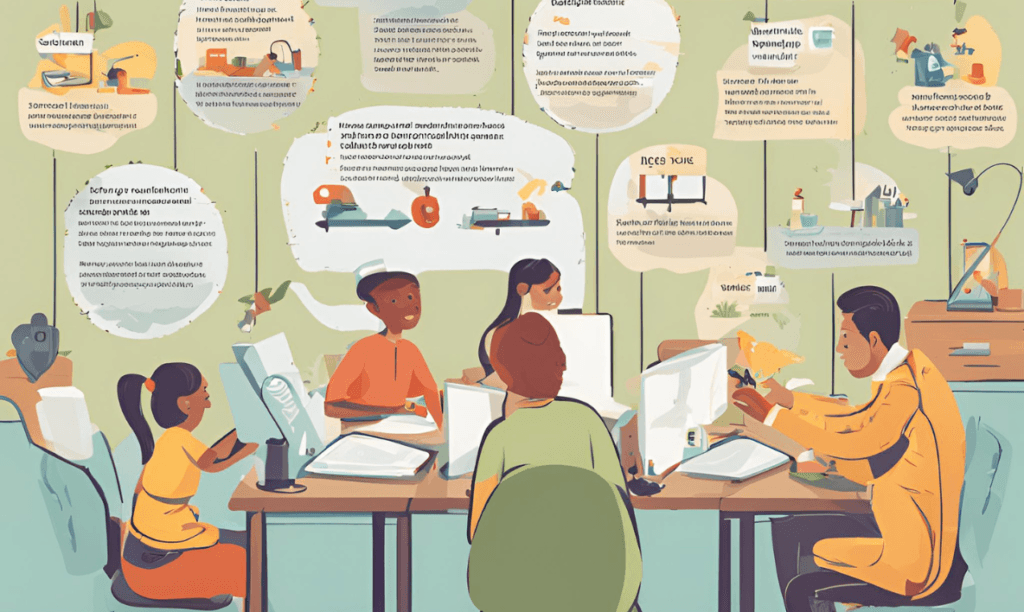Writing correctly is essential for clear communication. Spelling errors can undermine the credibility of your writing and confuse your readers. In this guide, we’ll explore common spelling mistakes and provide practical tips to help you avoid them, ensuring your writing is clear and professional.
Understanding Common Spelling Mistakes

Before we dive into specific mistakes, it’s crucial to understand why spelling errors occur. Often, they arise from:
- Lack of familiarity with the rules: English has many exceptions to its spelling rules.
- Typographical errors: Mistakes can happen when typing quickly.
- Homophones and irregular words: Words that sound alike or follow irregular patterns can be tricky.
- 10 Proven Strategies to improve Spelling
Mistake 1: Homophones
Homophones are words that sound the same but have different meanings and spellings. Misusing them is a common error. Here are some examples:
- Their, There, They’re: “Their” is possessive, “there” refers to a place, and “they’re” is a contraction of “they are.”
- Your, You’re: “Your” is possessive, while “you’re” is a contraction of “you are.”
How to Avoid Homophone Mistakes
- Understand the meanings: Familiarize yourself with the meanings of commonly confused homophones.
- Double-check usage: Always review which homophone fits the context of your sentence.
Mistake 2: Silent Letters
Silent letters can make spelling tricky. Here are some common examples:
- Knife: The “k” is silent.
- Psychology: The “p” is silent.
How to Avoid Silent Letter Mistakes
- Learn common silent letters: Make a list of words with silent letters and practice them.
- Read and write regularly: Exposure to correctly spelled words helps reinforce their correct spelling.
Mistake 3: Irregular Words
Irregular words do not follow standard spelling rules. Examples include:
- Wednesday: The “d” is silent.
- Receipt: The “p” is silent.
How to Avoid Irregular Word Mistakes
- Practice frequently: Regular practice with these words helps reinforce their correct spelling.
- Use mnemonic devices: Create memory aids to remember tricky spellings.
Mistake 4: Confusing Prefixes and Suffixes
Prefixes and suffixes can alter the meaning of words and lead to errors if used incorrectly. For example:
- Unbelievable vs. Believable: Adding “un-” changes the meaning.
- Enjoyable vs. Enjoyble: Adding “-able” correctly.
How to Avoid Prefix and Suffix Mistakes
- Understand common prefixes and suffixes: Learn their meanings and how they modify words.
- Review and practice: Regularly practice words with various prefixes and suffixes.
Mistake 5: Commonly Misspelled Words
Some words are frequently misspelled, including:
- Accommodation: Often misspelled with a single “m.”
- Separate: Sometimes incorrectly spelled as “seperate.”
How to Avoid Common Misspelling
- Create a list: Keep a list of commonly misspelled words and review it regularly.
- Use spelling aids: Utilize tools and resources to practice these words.
Tips for Avoiding Spelling Mistakes
To improve your spelling and avoid mistakes, consider the following tips:
1. Read Regularly
Reading a variety of materials exposes you to correct spelling and reinforces your knowledge.
2. Practice Writing
Regular writing practice helps solidify your spelling skills. Write essays, journal entries, or even simple sentences to practice.
3. Use Spelling Tools
Employ spelling tools like:
- Spellcheckers: Automatically highlight spelling errors in your writing.
- Spelling apps: Provide interactive exercises and quizzes.
Using Technology to Check Spelling
Technology can assist in catching spelling errors:
1. Spellcheck Software
Use spellcheckers in word processors or online platforms to automatically identify and correct mistakes.
2. Online Spelling Tests
Take online spelling tests to gauge your skills and practice challenging words.
3. Educational Apps
Explore apps designed to improve spelling, such as:
- Grammarly: Offers advanced spelling and grammar checks.
- SpellTower: A fun game to practice spelling.
Key Takeaways:
- Leverage technology for spelling checks and practice.
- Use educational apps to make learning engaging.
Conclusion
By understanding common spelling mistakes and applying the strategies outlined in this guide, you can enhance your writing skills and avoid frequent errors. Regular practice, exposure to correctly spelled words, and the use of technology will contribute to better spelling.
Key Takeaways:
- Familiarize yourself with common spelling mistakes and practice frequently.
- Utilize spelling tools and apps to aid in improvement.
FAQs
Q1: How can I avoid making spelling mistakes in my writing?
Regular practice, understanding common errors, and using spelling tools can help you avoid mistakes.
Q2: What are some common spelling mistakes?
Common mistakes include errors with homophones, silent letters, irregular words, prefixes and suffixes, and frequently misspelled words.
Q3: How can technology help with spelling?
Technology offers tools like spellcheckers, educational apps, and online tests to assist in spelling improvement.
Q4: What should I do if I often misspell certain words?
Create a list of these words, practice them regularly, and use mnemonic devices to remember their correct spellings.

